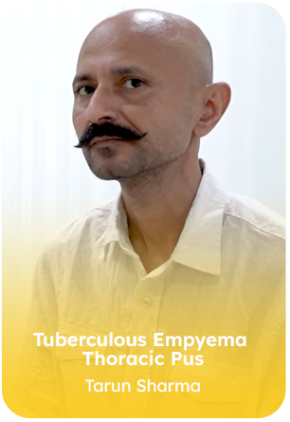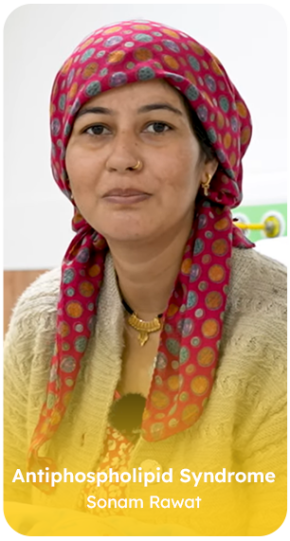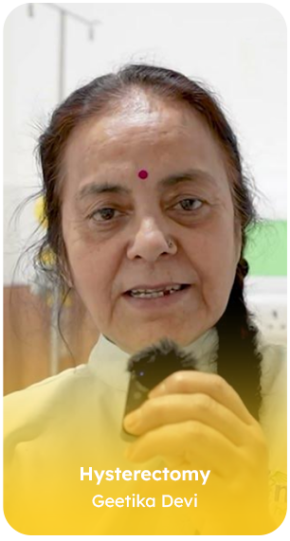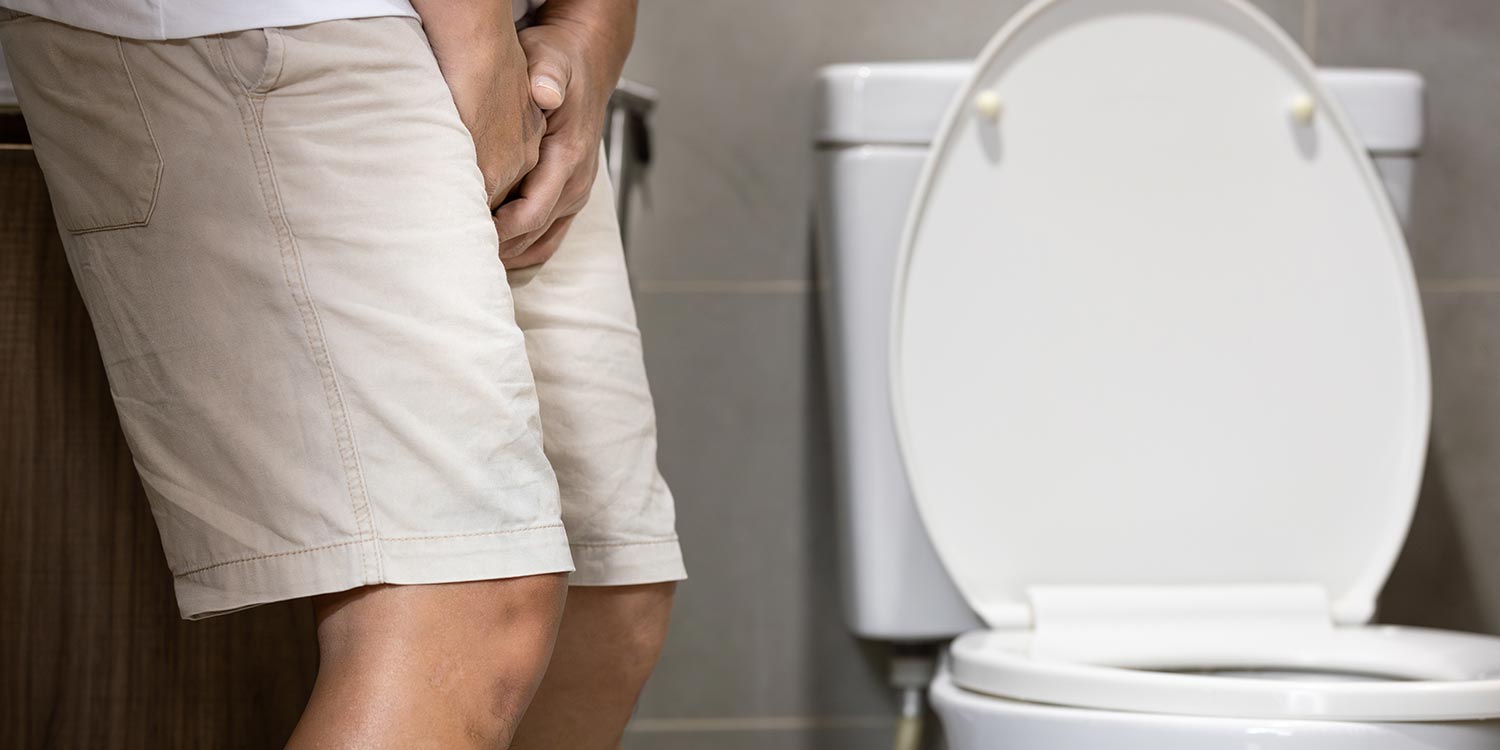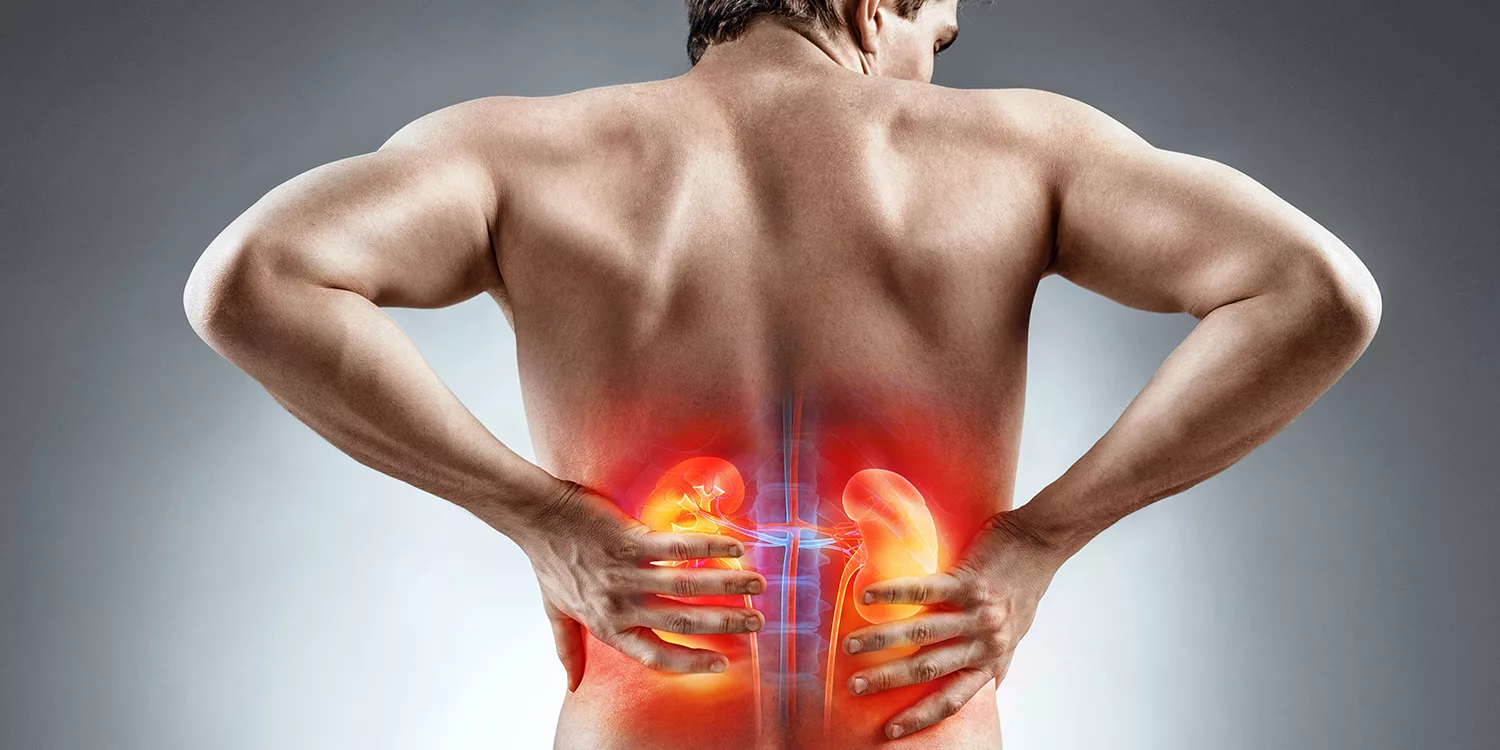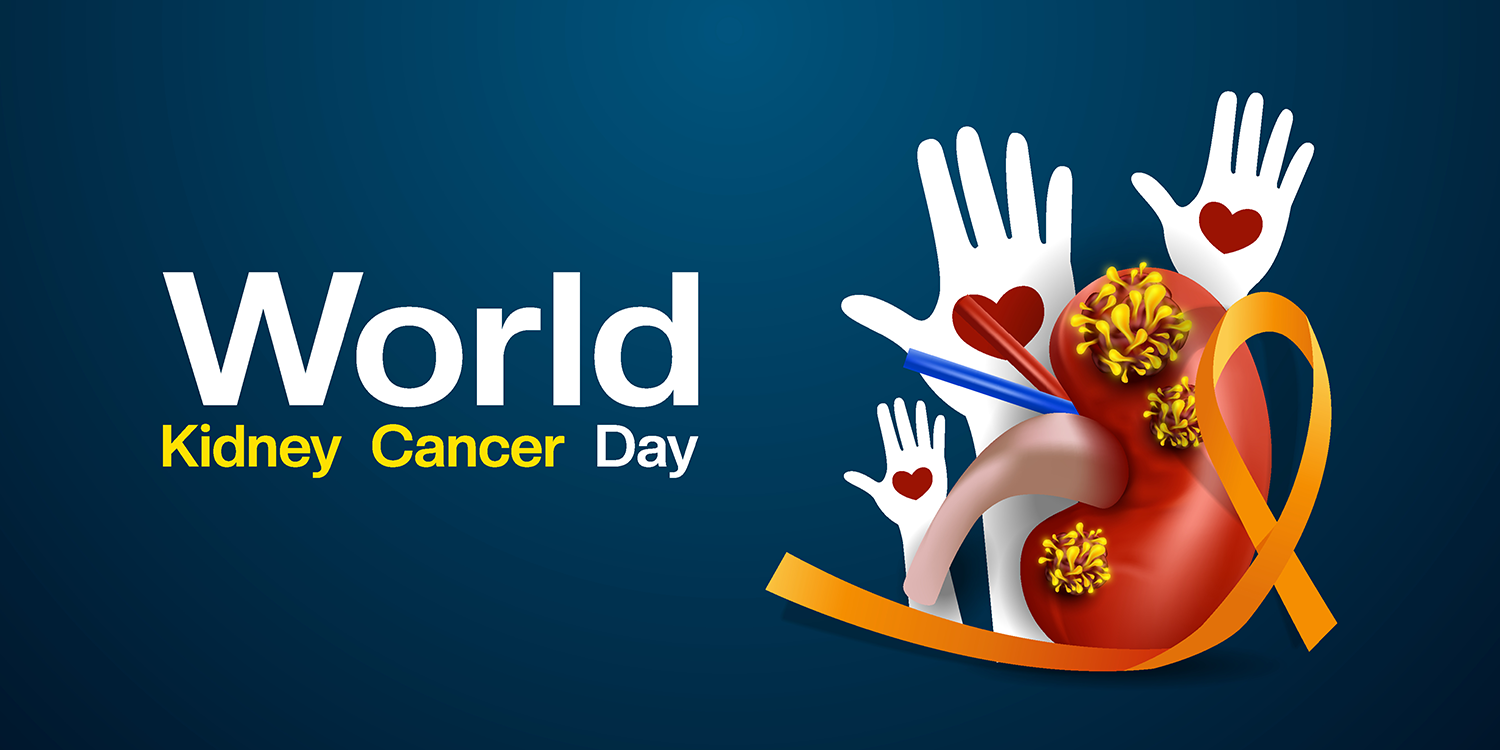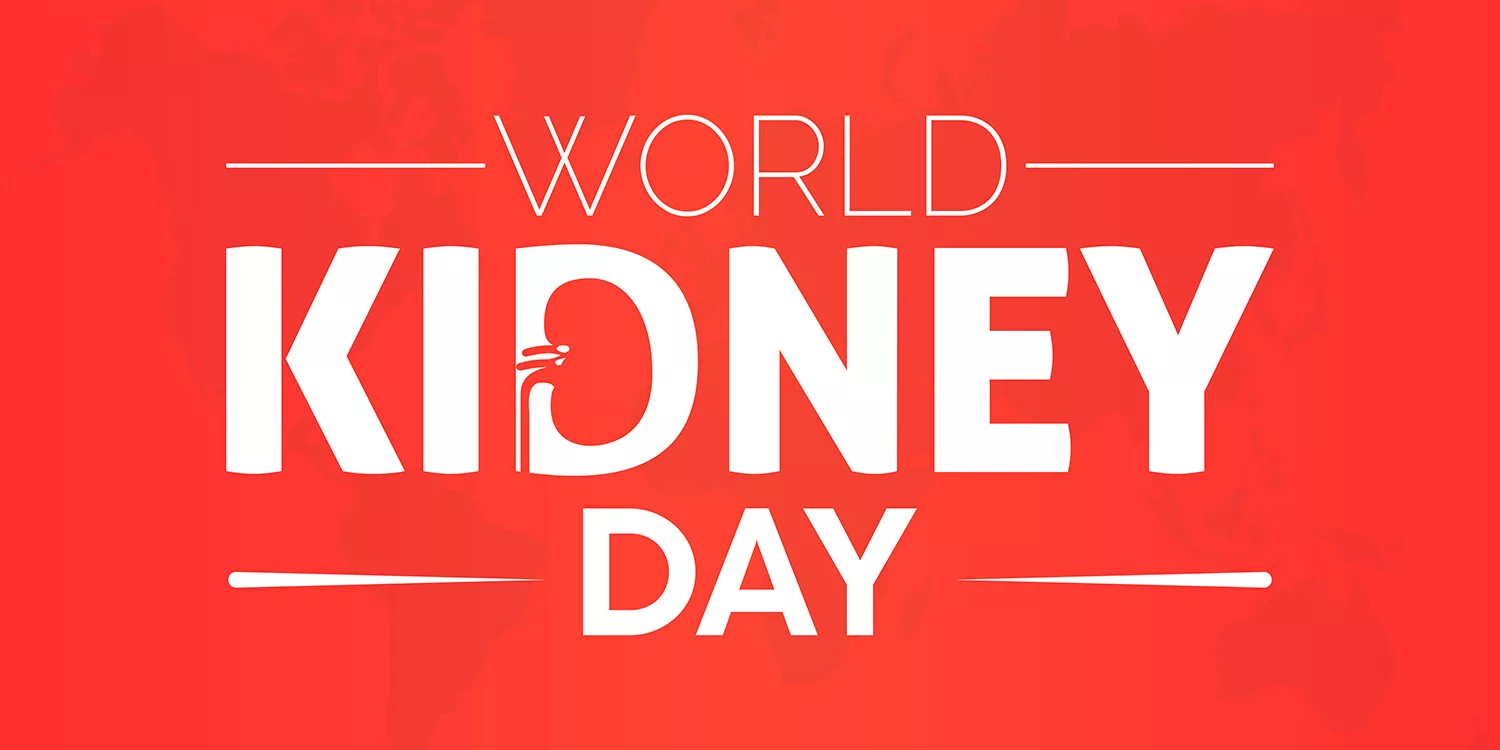Dialysis is a life-sustaining procedure used to remove waste products, excess fluids, and toxins from the blood when the kidneys are no longer able to function effectively. It is most commonly required in patients with chronic kidney disease (CKD) or acute kidney injury (AKI). At Graphic Era Hospital, dialysis services are delivered through a dedicated Haemodialysis Unit equipped with modern machines and closely supervised by expert nephrologists and trained technicians. We also have an outskirt satellite unit at Vikasnagar to provide high-quality hemodialysis to people coming from hilly regions of Uttarakhand and Himachal Pradesh, with weekly visits of Nephrologist and all the other specialists, and lab and pathological support with ambulance services in case of emergency. Our Department of Nephrology & Dialysis provides comprehensive care across all dialysis modalities, including haemodialysis, peritoneal dialysis, and critical care dialysis. With an emphasis on patient comfort, safety, and continuous monitoring, we offer a structured approach to renal replacement therapy that supports long-term kidney health and improved quality of life.
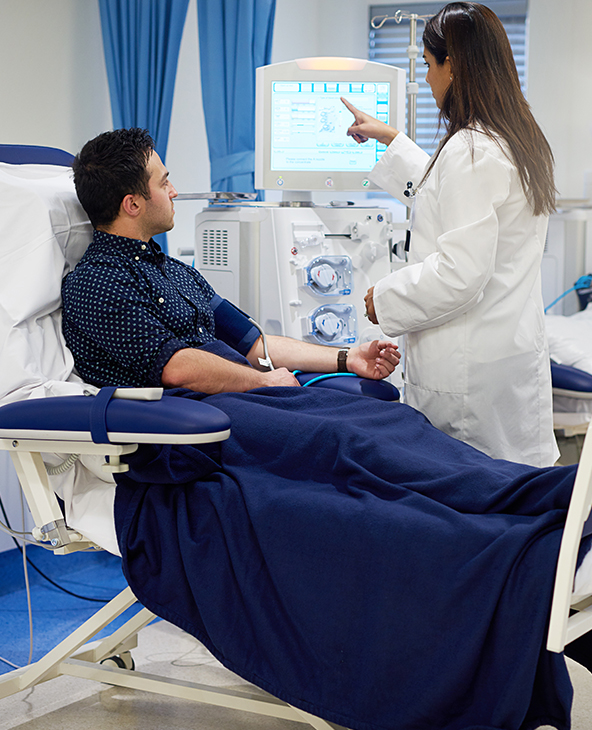
When to Seek Dialysis Evaluation?
Kidney dysfunction can progress silently, often showing symptoms only in advanced stages. Early recognition and timely intervention can delay complications and improve outcomes. The following signs may indicate the need for dialysis or specialised nephrology evaluation:
- Swelling in the feet, ankles, or around the eyes
- Nausea, vomiting, or loss of appetite
- Persistent fatigue or generalised weakness
- Reduced urine output or frothy urine
- Confusion, drowsiness, or difficulty concentrating
- Shortness of breath without lung disease
- Persistent itching or dry, flaky skin
- Muscle cramps, especially at night
- Metallic taste in the mouth or unpleasant breath
- Elevated blood creatinine or urea levels
- Diagnosis of end-stage kidney failure or advanced chronic kidney disease (CKD)
Schedule Your Appointment with
Our Expert Doctors
We are dedicated to driving lasting, positive transformation in healthcare management through innovation and patient-centered solutions.
Preparing for Dialysis at Graphic Era Hospital
A structured preparation process helps patients transition smoothly into dialysis. At Graphic Era Hospital, our multidisciplinary team ensures every patient is clinically optimised, informed, and emotionally supported before starting dialysis.
Diagnostic Workup and Assessment
- Blood tests to assess kidney function (e.g., serum creatinine, eGFR, urea)
- Imaging studies such as renal ultrasound
- Planning for vascular access (AV fistula or catheter)
- Evaluation of dialysis frequency and modality based on individual needs
Patient Education and Counselling
- Explanation of the dialysis process and the differences between haemodialysis and peritoneal dialysis
- Information on when dialysis is required and how long it may be needed
- Discussion on potential side effects and complications of dialysis
- Dietary and lifestyle adjustments to support treatment
Pre-Procedural Planning
- Surgical creation of AV fistula or central venous catheter placement
- Infection prevention measures and vaccination updates
- Scheduling initial dialysis sessions and transportation support
Types of Dialysis Procedures Offered at Graphic Era Hospital
At Graphic Era Hospital, a full spectrum of dialysis options is available to meet the diverse needs of patients with kidney failure. Each method is delivered using advanced equipment under the supervision of experienced nephrologists.
- Haemodialysis (HD): The most common form of dialysis, where the patient’s blood is filtered through a dialyser (artificial kidney) to remove waste and excess fluids. Performed in our hospital-based hemodialysis unit with strict infection control protocols.
- Peritoneal Dialysis (PD): A home-based method where a cleansing fluid is introduced into the abdomen via a catheter. The peritoneal membrane acts as a filter to remove toxins. Options include Continuous Ambulatory Peritoneal Dialysis (CAPD) and Automated Peritoneal Dialysis (APD).
- Continuous Renal Replacement Therapy (CRRT): Specialised for critically ill patients in the ICU who are hemodynamically unstable. CRRT offers continuous and gentle fluid and toxin removal over 24 hours.
- Plasmapheresis: A therapeutic procedure that removes harmful antibodies and proteins from the blood. Often used for autoimmune or severe kidney-related conditions such as vasculitis and glomerulonephritis.
Why Choose Graphic Era Hospital for Dialysis?

Post-Dialysis Care and Lifestyle Support
Ongoing care after dialysis is essential to maintain health, manage side effects, and enhance quality of life. At Graphic Era Hospital, our multidisciplinary approach supports patients through every stage of dialysis treatment.
- Monitoring and Medical Follow-Up: Regular assessment of fluid status, blood pressure, and lab parameters such as haemoglobin, electrolytes, and dialysis adequacy ensures safe and effective treatment.
- Dialysis Access Care: Special attention is given to the AV fistula or catheter site to prevent infections, clotting, or other complications. Patients are educated on recognising warning signs.
- Nutritional Support: Dietitian provide personalised dialysis diet plans focusing on protein intake, fluid balance, and control of potassium, phosphorus, and sodium levels.
- Managing Side Effects: Common issues like fatigue, cramps, or low blood pressure during dialysis are addressed with care adjustments and medical advice.
- Psychosocial and Emotional Support: Counselling is offered to help patients and families cope with the emotional and lifestyle challenges of long-term dialysis.
- Planning for Kidney Transplant: Patients eligible for renal transplantation are evaluated and guided through the referral and preparation process if they wish to transition from dialysis to transplant.
Top Dialysis Services at Graphic Era Hospital
- In-centre haemodialysis for chronic and acute kidney failure
- Peritoneal dialysis with CAPD and APD options
- Continuous Renal Replacement Therapy (CRRT) for ICU patients
- Plasmapheresis for complex renal and autoimmune conditions
- Vascular access creation (AV fistula and catheter placement)
- Dialysis care for patients with chronic kidney disease (CKD) and end-stage renal disease (ESRD)
Patient Stories
Blog
Frequently Asked Questions (FAQs)
What is dialysis and why is it done?
Dialysis is a medical procedure that removes waste, toxins, and excess fluids from the blood when the kidneys can no longer perform this function. It is essential for patients with kidney failure or advanced chronic kidney disease.
What is the principle of dialysis and how does it work?
Dialysis works on the principle of diffusion and filtration. In haemodialysis, blood passes through a dialyser where waste and excess fluids are removed. In peritoneal dialysis, the abdominal lining acts as a filter to cleanse the blood.
What are the different types of dialysis procedures?
The main types include haemodialysis, peritoneal dialysis, and continuous renal replacement therapy (CRRT). The choice depends on kidney function, patient condition, and lifestyle needs.
What are the indications for dialysis?
Dialysis is required when kidney function drops below 10–15% and symptoms such as fluid overload, high potassium, nausea, fatigue, or difficulty breathing appear. It is also used in cases of acute kidney injury.
What are the side effects and complications of dialysis?
Possible side effects include low blood pressure, cramps, nausea, headaches, infections at access sites, and fatigue. Long-term dialysis can also lead to anaemia and bone mineral disorders.
How is haemodialysis done and how often is it needed?
In haemodialysis, blood is circulated through a machine that filters waste. It is usually done three times a week, with each session lasting 3–4 hours, depending on the patient’s condition.
What is the cost of dialysis treatment in India?
Dialysis cost varies depending on frequency, type (haemodialysis or peritoneal dialysis), and location. At Graphic Era Hospital, the nephrology team provides detailed cost estimates during the initial consultation.
What is the dialysis diet and why is it important?
A dialysis diet controls the intake of protein, sodium, potassium, and fluid to reduce strain on the kidneys and avoid complications. Dietitian create customised plans for each patient.
What is the difference between dialysis and kidney transplant?
Dialysis is a long-term treatment to perform kidney function externally, while a transplant replaces the failed kidney with a healthy donor organ. Dialysis may be continued until a transplant is possible.
Where can I find a dialysis centre near me in Dehradun?
Graphic Era Hospital offers advanced haemodialysis and peritoneal dialysis services in Dehradun, managed by experienced nephrologists and supported by a fully equipped dialysis unit.
